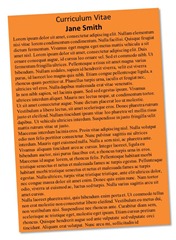Pocketblog has gone back to basics. This is part of an extended management course.
A career in management is built on the reputation you create for yourself. This is not about arrogantly promoting yourself at every opportunity, but it is about managing the opportunities you seize and your personal PR.
Exercise 1: 15 Minutes of Fame
‘In the future, everyone will be world-famous for 15 minutes’ said Andy Warhol. What will you be famous for? Take some time to note down what you are good at, what you want to become good at and how this can help you make a positive name for yourself.
When you have done this, keep an ear open for projects and initiatives that you can participate in at work and in your community. To increase your chances of finding good opportunities, increase your network.
Exercise 2: Expand your Network
Make a list of all of the people you know in your organisation who could help you develop a strong reputation. Classify each as a major or minor player (you will need to review this list and these classifications from time to time). Now look at each and decide whether you need to strengthen your relationship with them, through meeting for coffee, offering support on one of their projects, or having lunch with them.
Exercise 3: Review your CV
We looked at preparing a CV in a blog called ‘New Job’. It is time to review your CV and to give it a little more impact. Work on your CV to make sure:
- It is absolutely clear what you do and why you are the best person to do it
- It demonstrates why I should trust you with the best, most challenging role
- The quality of its presentation, layout and production reflects the quality you want to portray for yourself
Exercise 4: Who are you? What do you do?
These are two questions that often throw people. Yet they ought to be the ones we really know the answer to. So write each question at the top of a sheet of paper and start jotting snippets, phrases and words that will start to answer the question.
Gradually shape those gobbets into a coherent and concise answer. Now word craft your answer to give it real impact.
Finally, practise it, until you can say it clearly and correctly without referring to your notes. Make sure you have the final version properly recorded in your notebook and, from time to time, review and update it. When you do that, always start from scratch.



